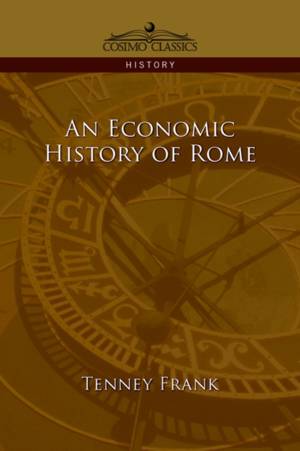
Door een staking bij bpost kan je online bestelling op dit moment iets langer onderweg zijn dan voorzien. Dringend iets nodig? Onze winkels ontvangen jou met open armen!
- Afhalen na 1 uur in een winkel met voorraad
- Gratis thuislevering in België vanaf € 30
- Ruim aanbod met 7 miljoen producten
Door een staking bij bpost kan je online bestelling op dit moment iets langer onderweg zijn dan voorzien. Dringend iets nodig? Onze winkels ontvangen jou met open armen!
- Afhalen na 1 uur in een winkel met voorraad
- Gratis thuislevering in België vanaf € 30
- Ruim aanbod met 7 miljoen producten
Zoeken
Omschrijving
Passenger fares seem to us to have been very low. Passengers however appear to have been responsible for their own sustenance, the quarters were probably far from luxurious and of course loss of life by shipwreck unlike loss of freight entailed no financial loss to the carrier. -from "Chapter XVI: Commerce" In this classic work-an expansion of an earlier 1920 edition-a respected classical scholar sketches the economic life of the Roman culture through the republican period and into the fourth century of the empire. Though later books unfairly supplanted it, this volume remains an excellent introduction to the capital, commerce, labor, and industry of the immediate forerunner of modern civilization. In clear, readable language, Frank explores: . agriculture in early Latium . the rise of the peasantry . Roman coinage . finance and politics . the "plebs urbana" . the beginnings of serfdom . and much more. American historian TENNEY FRANK (1876-1939) was professor of Latin at Bryn Mawr College and Johns Hopkins University, and also wrote Roman Imperialism (1914) and A History of Rome (1923).
Specificaties
Betrokkenen
- Auteur(s):
- Uitgeverij:
Inhoud
- Aantal bladzijden:
- 528
- Taal:
- Engels
- Reeks:
Eigenschappen
- Productcode (EAN):
- 9781596056473
- Verschijningsdatum:
- 1/02/2006
- Uitvoering:
- Paperback
- Formaat:
- Trade paperback (VS)
- Afmetingen:
- 152 mm x 229 mm
- Gewicht:
- 766 g

Alleen bij Standaard Boekhandel
+ 73 punten op je klantenkaart van Standaard Boekhandel
Beoordelingen
We publiceren alleen reviews die voldoen aan de voorwaarden voor reviews. Bekijk onze voorwaarden voor reviews.











